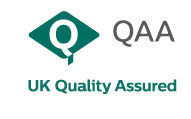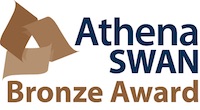Revolutionary aerosol technology wins Times Higher Education Award

Revolutionary aerosol technology wins Times Higher Education Award
Friday 5 December 2014
A revolutionary eco-friendly aerosol valve system developed at the University of Salford won the Outstanding Contribution to Innovation and Technology Award at the Times Higher Education (THE) Awards this week.
Now in their tenth year, the THE Awards are a highlight of the academic calendar, shining a spotlight on the outstanding achievements of institutions, teams and individuals in the UK higher education sector.
The new aerosol valve system developed at the University will be introduced into the multibillion pound global aerosol spray market through a commercial deal with The Salford Valve Company Ltd, which trades as ‘Salvalco’.
Salvalco aims to exploit the technology globally and has signed a Technical Co-operation Agreement with the international Colep Group and One-Asia Group to apply the new technology to the many different forms of aerosol in the worldwide market.
The University’s technology removes the need for volatile organic compounds (VOCs) in aerosol sprays, representing a major breakthrough in greenhouse gas reduction as well as reducing production costs and enhancing aerosol safety. The valve pre-empts proposed environmental directives that are expected to come into force in the next decade and provides a timely solution to the long-term sustainability of aerosol production and usage.
Replacing VOCs with environmentally acceptable propellants is an ongoing challenge within the aerosol industry but many of the proposed solutions could not deliver a spray acceptable to end users.
The research team at Salford, led by Professor Ghasem Nasr, recognised this issue and sought to address it. The innovative technology they developed uses environmentally friendly compressed gas propellant (air or nitrogen) to replace VOCs. They created “bubbly flow” within a suite of novel aerosol valves which enables the resulting spray to have performance equal in terms of look, feel and performance to current VOC-powered systems.
Five patents have already been granted representing the multiple technological advances that make up the Salford valve system.
The University’s Technology Transfer Team, led by Malcolm Purdie, took these patents and developed the commercial proposition around them. During 2012-13 the team worked extensively with a number of industrial partners to refine the technology and address the technical challenges of translating these research innovations into production solutions. Through these developments and partnerships the relationship with Salvalco was formed which led to the recent acquisition of the technology by the company.
Global production of aerosol cans is estimated at 17 billion units per year, and in the UK alone it is estimated that VOCs from aerosols contribute around 6% of the UKs annual greenhouse gas emissions. The Salford technology has the potential to almost completely remove the need for VOC based aerosol propellants and hence remove a significant amount of greenhouse gas emissions.
The technology has potential for use in most aerosol applications including consumer goods, cosmetics, household, food and healthcare, bringing immense environmental, financial and safety benefits to manufacturers and consumers across the globe.
Currently the presence of flammable VOC propellants (such as propane or butane) in aerosols means that the filling process must have stringent safety precautions and heavy insurance costs: these problems continue during transportation, retail storage and home use. This social and environmental risk background will change for the better and save costs at every stage when VOC’s are replaced with compressed air propellants.
Since acquiring the technology from the University, Salvalco has invested heavily in the upscale development, manufacture, sales and marketing of the innovative family of valves which this technology has produced. Initial production volume is estimated to be on the scale of millions of valves, with the first valves anticipated to be available on the market by October 2014.
More information on Professor Ghasem Nasr’s Spray Research Group can be found here.
Salvalco is a private venture focused on commercialising the University’s intellectual property. Full details on the company can be found here.
Further information on the University of Salford’s Technology Transfer Team can be found here









